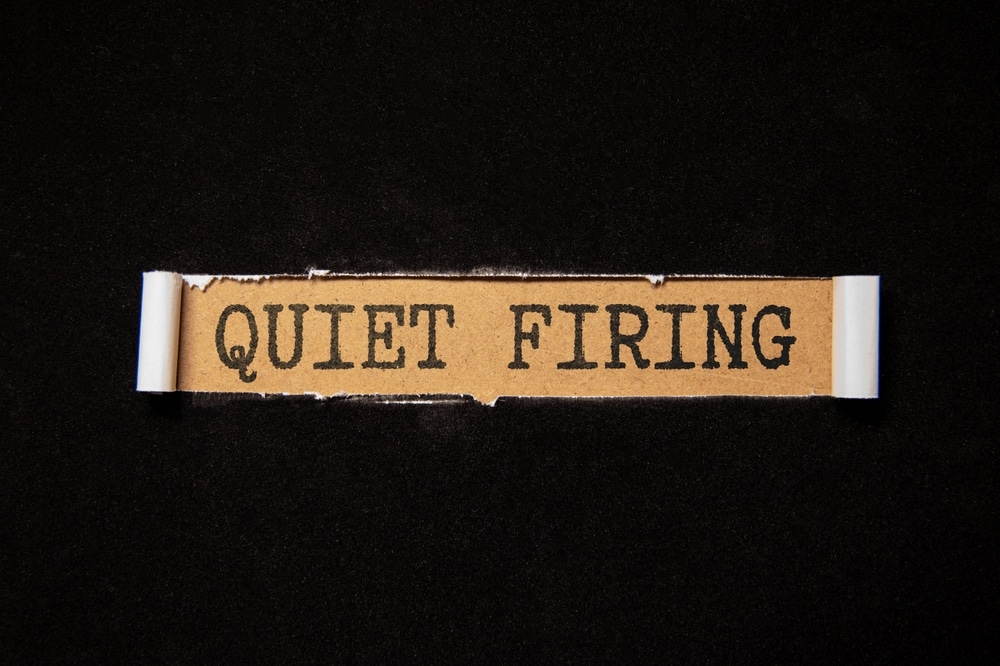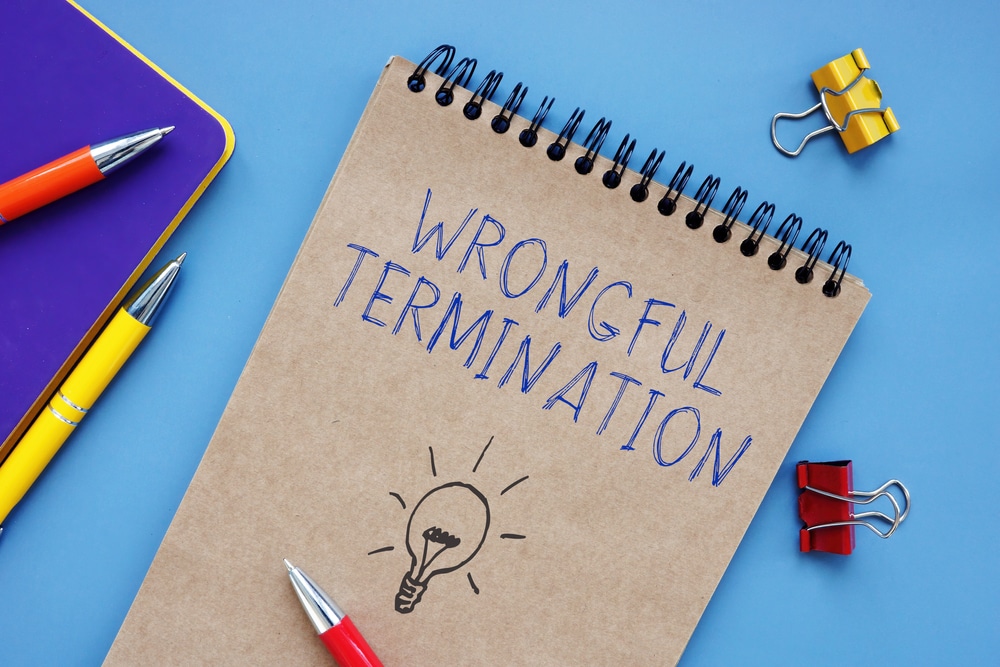When Quitting Feels Like Being Fired
As employment lawyers serving clients across the Chicago area, we’ve spoken to many workers who say, “I didn’t want to quit—I had to.” That statement often signals something more serious than a difficult job. In some cases, it reflects a situation where an employer made working conditions so intolerable that a reasonable person would feel they had no choice but to resign. This is what the law refers to as constructive discharge. Even though the employee technically quits, the resignation is treated under the law as if the employer fired them. That means legal rights, including the ability to sue for wrongful termination or retaliatory discharge, may still apply.
Illinois and federal laws protect workers from being forced out of their jobs through unlawful treatment. Constructive discharge claims often arise in retaliation cases, discrimination cases, and hostile work environment situations. We’ve handled many cases where employees were pushed out for reporting illegal behavior, complaining about harassment, or asserting their workplace rights. If your resignation felt like the only option left, the law may be on your side.
What Is Constructive Discharge Under Federal Law
Under federal law, constructive discharge occurs when working conditions become so intolerable that a reasonable employee in the same position would feel forced to resign. The U.S. Supreme Court formally recognized constructive discharge in the case of Pennsylvania State Police v. Suders, 542 U.S. 129 (2004). In that decision, the Court clarified that when an employer deliberately makes an employee’s life at work unbearable, quitting may be treated the same as a termination.
Constructive discharge is not a separate legal claim by itself—it supports claims like retaliation, discrimination, or hostile work environment. For example, if an employee resigns because of ongoing sexual harassment that the employer failed to stop, the resignation may be considered a constructive discharge under Title VII of the Civil Rights Act of 1964 (42 U.S.C. § 2000e et seq.).
To succeed in a constructive discharge case under federal law, we must typically show:
- The working conditions were objectively intolerable
- The employer intended to force the employee to resign or knowingly permitted the conditions
- A reasonable person in the same situation would have felt compelled to quit
We often work with clients to gather emails, performance reviews, HR complaints, witness statements, and other evidence showing a pattern of mistreatment leading up to the resignation.
Constructive Discharge And Illinois Employment Law
Illinois recognizes constructive discharge under its own legal framework as well. Courts in Illinois have held that a resignation can be considered involuntary if it results from coercive or intolerable working conditions. Constructive discharge supports claims under the Illinois Human Rights Act (775 ILCS 5/1-101 et seq.), which prohibits employment discrimination based on race, sex, religion, disability, age, and other protected categories.
Additionally, constructive discharge can play a role in claims of retaliatory discharge under Illinois law. Illinois is an at-will employment state, but employers still cannot retaliate against employees for exercising legal rights, such as:
- Reporting workplace safety violations
- Filing for workers’ compensation
- Whistleblowing under the Illinois Whistleblower Act (740 ILCS 174/1 et seq.)
- Reporting unlawful discrimination or harassment
If the retaliation becomes unbearable and leads to resignation, that resignation may qualify as a constructive discharge. In such cases, we build a legal argument that the employer’s conduct amounted to an indirect firing—one that still triggers the legal protections available to fired employees.
Signs That Suggest Constructive Discharge
We encourage employees to document and speak with an attorney when any of the following signs appear:
- Repeated harassment by supervisors or coworkers that management fails to address
- Drastic changes in job duties are meant to demean or marginalize the employee
- Sudden demotion or pay cuts without cause
- Exclusion from meetings, communications, or opportunities
- Unreasonable discipline or write-ups after reporting misconduct
- Threats of termination or retaliation for legal complaints
- Hostile or unsafe working environments after asserting your rights
These are red flags. If an employer’s conduct drives you out the door, you may not be “just quitting”—you may have a legal claim.
Why Constructive Discharge Cases Require Strategic Legal Help
Constructive discharge cases are complex. The employer will almost always argue that you left voluntarily and that they didn’t force you to quit. That’s why evidence matters. We work closely with clients to reconstruct a timeline of events showing how the working conditions became intolerable and how the employer knew—or should have known—what was happening.
We also handle communication with the Equal Employment Opportunity Commission (EEOC) or the Illinois Department of Human Rights (IDHR), where complaints must be filed before a lawsuit can move forward. Timing is critical. Under federal law, most discrimination or retaliation claims must be filed with the EEOC within 300 days of the last unlawful act. Under Illinois law, the filing deadline with the IDHR is typically 300 days as well.
Whether your claim is based on sexual harassment, racial discrimination, disability retaliation, or whistleblower status, we craft a legal strategy that shows your resignation was not a choice—it was the result of unlawful pressure.
Potential Remedies For Constructive Discharge Claims
If we can prove that your resignation qualifies as a constructive discharge, you may be entitled to the same damages as if you had been wrongfully terminated. Depending on the facts of the case and the laws involved, possible remedies include:
- Lost wages and benefits (back pay)
- Future lost earnings (front pay)
- Emotional distress damages
- Reinstatement in some cases
- Punitive damages (in federal discrimination cases)
- Attorneys’ fees and court costs.
We tailor our legal arguments to maximize compensation and hold the employer accountable for conduct that drove you out unfairly.
FAQs About Constructive Discharge In Illinois
How Do I Know If I Was Constructively Discharged Or If I Just Quit?
If your resignation was due to ongoing mistreatment, discrimination, retaliation, or harassment, and a reasonable person would have felt compelled to leave under the same conditions, you may have been constructively discharged. We evaluate all the facts, including workplace history, HR responses, and the timing of your resignation, to determine whether the legal standard is met.
Is It Still Constructive Discharge If I Never Filed An Internal Complaint Before Quitting?
While it’s helpful to document complaints with HR or management, it’s not always required. Courts may still find constructive discharge if the conduct was extreme enough, or if the employer’s system for handling complaints was ineffective or hostile. However, we often advise clients to report misconduct when possible to strengthen their legal position.
What If My Employer Offers Me A Severance Package—Does That Affect My Rights?
It depends. Accepting or rejecting a severance agreement may limit your rights if you signed a release. We always recommend reviewing severance offers with an attorney before signing. If you signed away your rights unknowingly, we may be able to challenge the agreement, depending on the circumstances.
How Long Do I Have To File A Constructive Discharge Claim?
For most federal claims, you must file a charge with the EEOC within 300 days of the final discriminatory or retaliatory act. For Illinois Human Rights Act claims, the deadline is also generally 300 days. Time limits are strict. That’s why we urge clients to take action quickly after resigning.
What Kind Of Proof Do I Need To Win A Constructive Discharge Case?
We look for emails, text messages, disciplinary records, HR complaints, witness statements, performance evaluations, and other documentation showing how your working conditions deteriorated. Consistent patterns of mistreatment, especially after you engaged in protected activity, help support a constructive discharge claim.
Can I Be Eligible For Unemployment Benefits After Constructive Discharge?
Yes, you may still qualify for unemployment benefits if you can show that you resigned due to intolerable working conditions. We assist clients in preparing their applications and, if necessary, representing them in unemployment hearings to prove their case.
Can I Sue For Constructive Discharge Without An EEOC Or IDHR Filing?
Not in most discrimination or retaliation cases. You must first file a charge with the EEOC (federal) or IDHR (state). Only after receiving a right-to-sue letter can you file a lawsuit in court. We handle these filings and ensure deadlines are met to preserve your rights.
Does It Matter If The Employer Didn’t Intend For Me To Quit?
Intent can be shown through their actions. If management knew the conditions were intolerable and failed to correct them—or if they created the conditions through harassment, retaliation, or discrimination—that can meet the legal standard for constructive discharge, even if they didn’t outright say they wanted you gone.
Call The Law Office Of Michael T. Smith & Associates To Protect Your Rights
At the Law Office of Michael T. Smith & Associates, we’ve spent years helping Chicago workers fight back when they’ve been unfairly forced out of their jobs. Constructive discharge is more than a resignation—it’s a legal issue that deserves serious attention. If you felt pushed to quit because of discrimination, harassment, or retaliation, we can help you hold your employer accountable and seek justice.
To receive your free consultation, contact our Chicago employment law lawyer at the Law Office of Michael T. Smith & Associates when you call (847) 450-1103. We represent workers throughout the city of Chicago from our Lisle, Illinois office, and we’re ready to fight for your rights.









